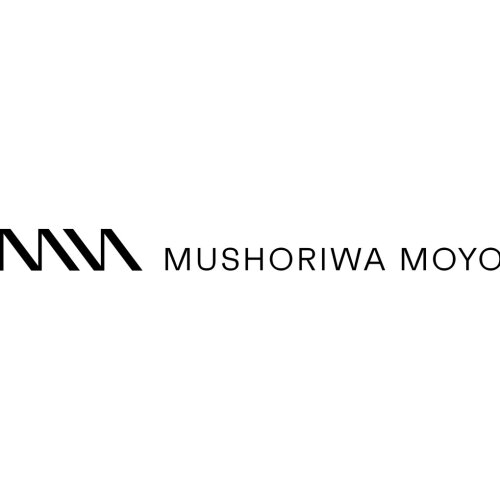Best Reinsurance Lawyers in Zimbabwe
Share your needs with us, get contacted by law firms.
Free. Takes 2 min.
Or refine your search by selecting a city:
List of the best lawyers in Zimbabwe
About Reinsurance Law in Zimbabwe
Reinsurance refers to the practice where insurance companies transfer portions of their risk portfolios to other parties to reduce the likelihood of paying a large obligation resulting from an insurance claim. In Zimbabwe, reinsurance plays a critical role in the insurance industry by providing financial strength and stability to insurers, thereby enabling them to cover larger or more diverse insurance policies. The regulatory framework for reinsurance in Zimbabwe is governed by the Insurance and Pensions Commission (IPEC), which ensures compliance with local laws and standards.
Why You May Need a Lawyer
There are several common situations in which individuals or entities involved in reinsurance may benefit from legal assistance:
- Policy Disputes: Legal expertise can help resolve disputes over the terms or execution of reinsurance contracts.
- Compliance Issues: Navigating the regulatory landscape requires a thorough understanding of laws affecting reinsurance operations.
- Claims Processing: Lawyers can assist with claim negotiations and ensure that agreements are honored correctly.
- Contractual Obligations: Drafting, reviewing, and enforcing reinsurance contracts require specific legal knowledge.
- Mergers and Acquisitions: When insurance companies undergo consolidation, the legal complexities of reinsurance agreements often necessitate specialized legal interpretation.
Local Laws Overview
The regulation of reinsurance in Zimbabwe is primarily overseen by IPEC, which mandates strict adherence to established guidelines. Some key aspects of local laws include:
- Licensing and Registration: Reinsurance companies must be registered and licensed under the IPEC statutes.
- Capital Requirements: Insurers partaking in reinsurance must maintain adequate capital reserves as dictated by regulatory agencies.
- Reporting Obligations: Regular submissions of financial statements and compliance reports to IPEC are required.
- Consumer Protection: Laws ensure the protection of policyholders' rights and the fair treatment of customers.
- Cross-Border Transactions: Reinsurance transactions involving international parties must comply with both local laws and pertinent international regulations.
Frequently Asked Questions
What is the role of reinsurance in Zimbabwe?
Reinsurance helps spread risk and provides stability to the insurance sector, ensuring the availability of coverage for large or complex risks.
Who regulates reinsurance in Zimbabwe?
The Insurance and Pensions Commission (IPEC) is the regulatory body overseeing reinsurance and insurance activities in Zimbabwe.
Can foreign reinsurance companies operate in Zimbabwe?
Yes, but they must comply with local regulations, including obtaining necessary licenses from IPEC and adhering to reporting obligations.
Why would an insurer in Zimbabwe seek reinsurance?
Insurers seek reinsurance to mitigate risk exposure, enhance capacity, stabilize financial performance, and manage capital efficiently.
How does reinsurance affect policyholders?
Reinsurance indirectly benefits policyholders by promoting insurer solvency and enabling coverage for larger risks that individual insurers might not handle alone.
Are there specific reinsurance laws for specific sectors?
While general reinsurance laws apply across all sectors, certain industries may have sector-specific regulations that must be observed in conjunction with reinsurance laws.
What happens if a reinsurance company fails in Zimbabwe?
In the event of a failure, policyholders are protected under consumer protection regulations, and the regulatory body would intervene to manage any insolvency process.
How do reinsurance disputes typically get resolved?
Disputes are often resolved through mediation, arbitration, or litigation, with legal counsel providing necessary guidance in these processes.
What is facultative reinsurance?
Facultative reinsurance is a type of reinsurance for specific individual risks, where the reinsurer retains the right to accept or decline each risk.
What is treaty reinsurance?
Treaty reinsurance is an arrangement where the reinsurer agrees to accept all risks of a particular type written by the insurer, subject to treaty terms.
Additional Resources
Several resources and organizations can provide valuable information or assistance regarding reinsurance in Zimbabwe:
- Insurance and Pensions Commission (IPEC): The primary regulatory body for insurance and reinsurance companies.
- The Insurance Council of Zimbabwe (ICZ): An industry association representing insurance companies, providing useful insights and data.
- Legal Practitioners: Firms specializing in insurance law can offer detailed legal advice and representation.
- Industry Reports: Publications from financial services analysis firms can provide industry-specific insights and trends.
Next Steps
If you require legal assistance in reinsurance, consider the following steps:
- Identify Your Needs: Determine the specific area of reinsurance where you need legal help.
- Research Legal Experts: Look for lawyers or law firms with expertise in reinsurance and insurance law.
- Schedule Consultations: Meet with legal practitioners to discuss your situation and evaluate their suitability for your needs.
- Engage Services: Once you've selected a lawyer, engage their services to guide you through your reinsurance-related legal issues.
- Stay Informed: Keep abreast of changes in local laws and market conditions affecting reinsurance in Zimbabwe.
Lawzana helps you find the best lawyers and law firms in Zimbabwe through a curated and pre-screened list of qualified legal professionals. Our platform offers rankings and detailed profiles of attorneys and law firms, allowing you to compare based on practice areas, including Reinsurance, experience, and client feedback.
Each profile includes a description of the firm's areas of practice, client reviews, team members and partners, year of establishment, spoken languages, office locations, contact information, social media presence, and any published articles or resources. Most firms on our platform speak English and are experienced in both local and international legal matters.
Get a quote from top-rated law firms in Zimbabwe — quickly, securely, and without unnecessary hassle.
Disclaimer:
The information provided on this page is for general informational purposes only and does not constitute legal advice. While we strive to ensure the accuracy and relevance of the content, legal information may change over time, and interpretations of the law can vary. You should always consult with a qualified legal professional for advice specific to your situation.
We disclaim all liability for actions taken or not taken based on the content of this page. If you believe any information is incorrect or outdated, please contact us, and we will review and update it where appropriate.
Browse reinsurance law firms by city in Zimbabwe
Refine your search by selecting a city.











